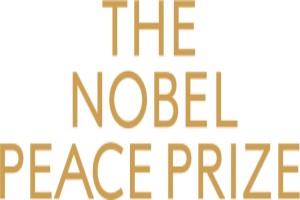
Oslo: The Nobel Peace Prize for 2020 has been awarded to World Food Programme “for its efforts to combat hunger, for its contribution to bettering conditions for peace in conflict-affected areas and for acting as a driving force in efforts to prevent the use of hunger as a weapon of war and conflict.”
 The Norwegian Nobel Committee acknowledged that in the face of the Coronavirus pandemic, the World Food Programme demonstrated “an impressive ability to intensify its efforts”. As the organisation itself has stated, “Until the day we have a medical vaccine, food is the best vaccine against chaos.”
The Norwegian Nobel Committee acknowledged that in the face of the Coronavirus pandemic, the World Food Programme demonstrated “an impressive ability to intensify its efforts”. As the organisation itself has stated, “Until the day we have a medical vaccine, food is the best vaccine against chaos.”
The Committee noted that the coronavirus pandemic had contributed to a strong upsurge in the number of victims of hunger in the world. In countries such as Yemen, the Democratic Republic of Congo, Nigeria, South Sudan and Burkina Faso, the combination of violent conflict and the pandemic led to a dramatic rise in the number of people living on the brink of starvation.
“With this year’s award, the Norwegian Nobel Committee wishes to turn the eyes of the world towards the millions of people who suffer from or face the threat of hunger. The World Food Programme plays a key role in multilateral cooperation on making food security an instrument of peace, and has made a strong contribution towards mobilising UN Member States to combat the use of hunger as a weapon of war and conflict. The organisation contributes daily to advancing the fraternity of nations referred to in Alfred Nobel’s will. As the UN’s largest specialised agency, the World Food Programme is a modern version of the peace congresses that the Nobel Peace Prize is intended to promote,” it stated.
Hailing the WFP as the the “world’s first responder” on the frontlines of food insecurity, Secretary-General António Guterres’ lauded the UN agency on winning the coveted award and stated, “The women and men of the WFP brave danger and distance to deliver life-saving sustenance to those devastated by conflict, to people suffering because of disaster, to children and families uncertain about their next meal.” He added: “We know that existential threats such as the climate change will make the hunger crisis even worse.”
WFP Executive Director David Beasley said the Nobel Prize to the organisation had now “turned the global spotlight” on the 690 million people suffering hunger globally. “The Nobel Peace Prize … is a humbling, moving recognition of the work of WFP staff who lay their lives on the line every day to bring food and assistance for close to 100 million hungry children, women and men across the world”, he said, adding that, “people whose lives are often brutally torn apart by instability, insecurity and conflict.”
Watch the United Nations Secretary-General António Guterres’ s speaking on Nobel to WFP
In 2019, 135 million people suffered from acute hunger, the highest number in many years. Most of the increase was caused by war and armed conflict. Referring to the link between hunger and armed conflict, which the Nobel Committee described as a vicious circle (“war and conflict can cause food insecurity and hunger, just as hunger and food insecurity can cause latent conflicts to flare up and trigger the use of violence”), it said the goal of zero hunder could never be achieved “unless we also put an end to war and armed conflict”. It further emphasised that providing assistance to increase food security not only prevents hunger, but can also help to improve prospects for stability and peace.
“The World Food Programme has taken the lead in combining humanitarian work with peace efforts through pioneering projects in South America, Africa and Asia,” it stated, but cautioned that the world was in danger of experiencing a hunger crisis of inconceivable proportions if the World Food Programme and other food assistance organisations did not receive the financial support they had requested. “The work of the World Food Programme to the benefit of humankind is an endeavour that all the nations of the world should be able to endorse and support,” it said.
It may be mentioned that The World Food Programme, which was established in 1961 and is headquartered in Rome, is the world’s largest humanitarian organisation addressing hunger and promoting food security. In 2019, the WFP provided assistance to close to 100 million people in 88 countries who were victims of acute food insecurity and hunger. In 2015, eradicating hunger was adopted as one of the UN’s Sustainable Development Goals. The WFP is the UN’s primary instrument for realising this goal. It was an active participant in the diplomatic process that culminated in May 2018 in the UN Security Council’s unanimous adoption of Resolution 2417, which for the first time explicitly addressed the link between conflict and hunger. The Security Council also underscored UN Member States’ obligation to help ensure that food assistance reaches those in need, and condemned the use of starvation as a method of warfare.
– globalbihari bureau





